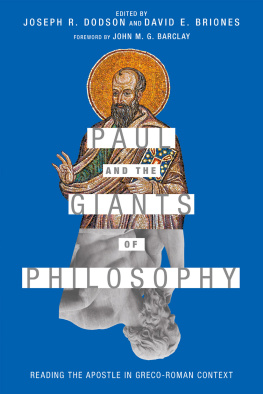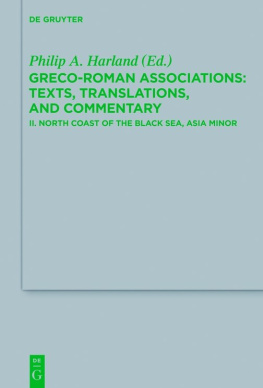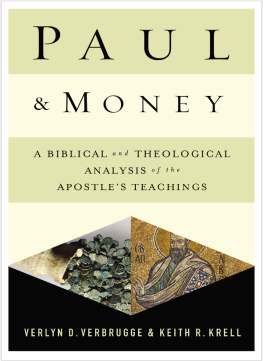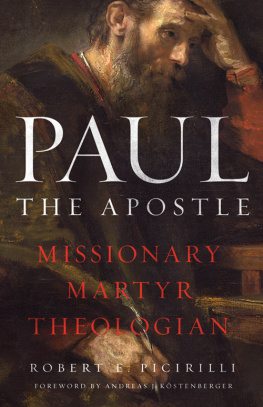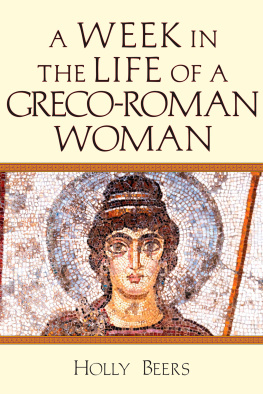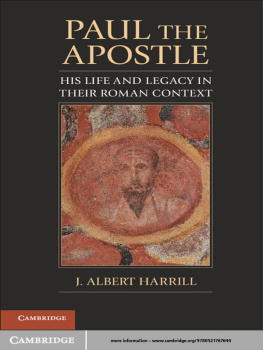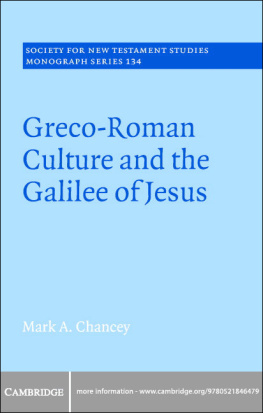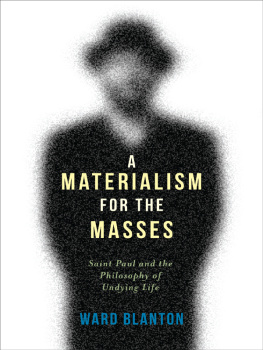David E. Briones - Paul and the Giants of Philosophy: Reading the Apostle in Greco-Roman Context
Here you can read online David E. Briones - Paul and the Giants of Philosophy: Reading the Apostle in Greco-Roman Context full text of the book (entire story) in english for free. Download pdf and epub, get meaning, cover and reviews about this ebook. year: 2019, publisher: InterVarsity Press / IVP Academic, genre: Religion. Description of the work, (preface) as well as reviews are available. Best literature library LitArk.com created for fans of good reading and offers a wide selection of genres:
Romance novel
Science fiction
Adventure
Detective
Science
History
Home and family
Prose
Art
Politics
Computer
Non-fiction
Religion
Business
Children
Humor
Choose a favorite category and find really read worthwhile books. Enjoy immersion in the world of imagination, feel the emotions of the characters or learn something new for yourself, make an fascinating discovery.
- Book:Paul and the Giants of Philosophy: Reading the Apostle in Greco-Roman Context
- Author:
- Publisher:InterVarsity Press / IVP Academic
- Genre:
- Year:2019
- Rating:5 / 5
- Favourites:Add to favourites
- Your mark:
- 100
- 1
- 2
- 3
- 4
- 5
Paul and the Giants of Philosophy: Reading the Apostle in Greco-Roman Context: summary, description and annotation
We offer to read an annotation, description, summary or preface (depends on what the author of the book "Paul and the Giants of Philosophy: Reading the Apostle in Greco-Roman Context" wrote himself). If you haven't found the necessary information about the book — write in the comments, we will try to find it.
David E. Briones: author's other books
Who wrote Paul and the Giants of Philosophy: Reading the Apostle in Greco-Roman Context? Find out the surname, the name of the author of the book and a list of all author's works by series.
Paul and the Giants of Philosophy: Reading the Apostle in Greco-Roman Context — read online for free the complete book (whole text) full work
Below is the text of the book, divided by pages. System saving the place of the last page read, allows you to conveniently read the book "Paul and the Giants of Philosophy: Reading the Apostle in Greco-Roman Context" online for free, without having to search again every time where you left off. Put a bookmark, and you can go to the page where you finished reading at any time.
Font size:
Interval:
Bookmark:
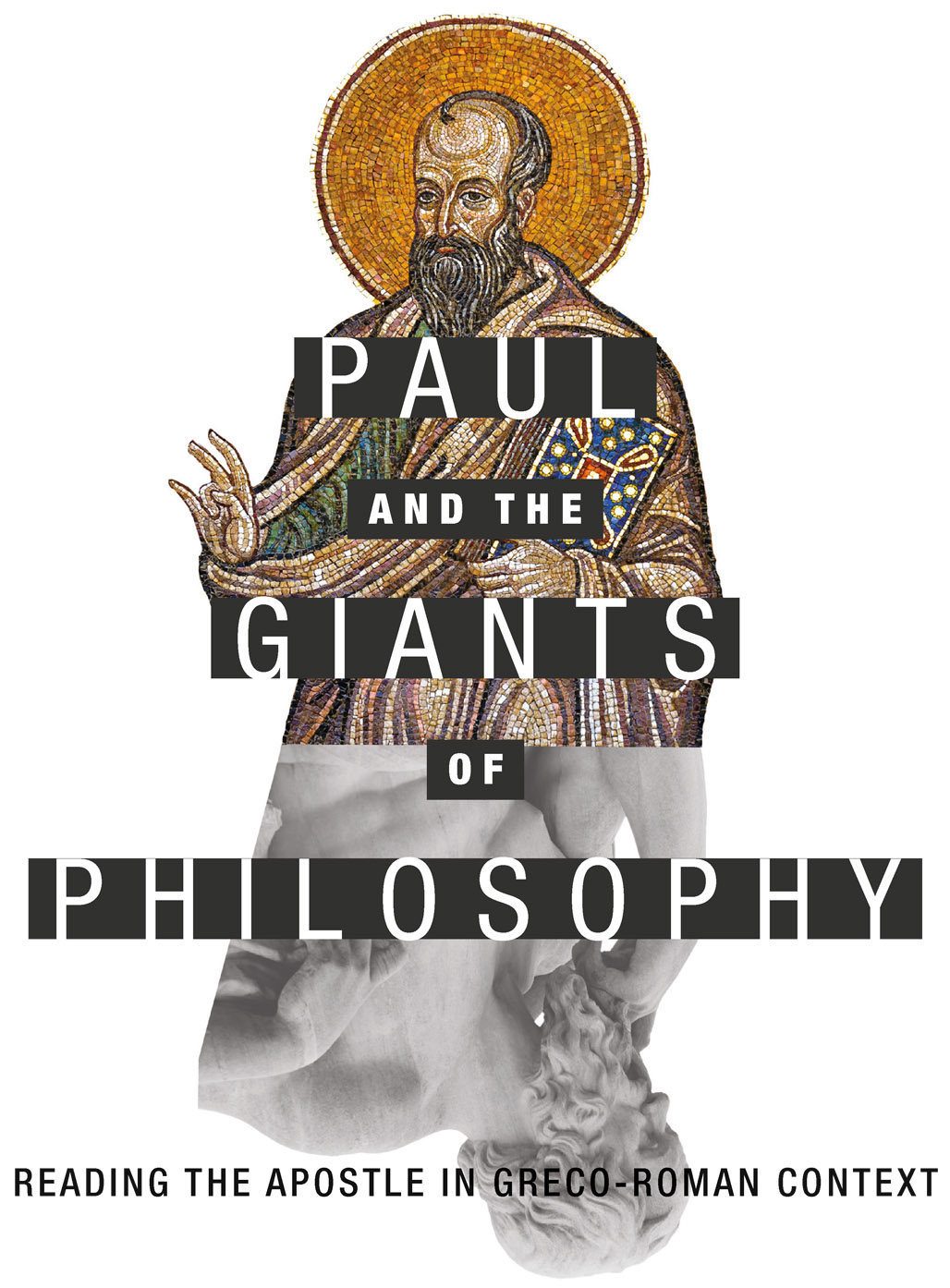
FOREWORD BY JOHN M. G. BARCLAY

InterVarsity Press
P.O. Box 1400, Downers Grove, IL 60515-1426
ivpress.com
2019 by Joseph R. Dodson and David E. Briones
All rights reserved. No part of this book may be reproduced in any form without written permission from InterVarsity Press.
InterVarsity Pressis the book-publishing division of InterVarsity Christian Fellowship/USA, a movement of students and faculty active on campus at hundreds of universities, colleges, and schools of nursing in the United States of America, and a member movement of the International Fellowship of Evangelical Students. For information about local and regional activities, visit intervarsity.org.
All Scripture quotations, unless otherwise indicated, are taken from The Holy Bible, New International Version, NIV. Copyright 1973, 1978, 1984, 2011 by Biblica, Inc.Used by permission of Zondervan. All rights reserved worldwide. www.zondervan.com. The NIV and New International Version are trademarks registered in the United States Patent and Trademark Office by Biblica, Inc.
Figure 1 is reproduced by permission from David E. Briones, Pauls Financial Policy: A Socio-Theological Approach. Library of New Testament Studies. London: T&T Clark, an imprint of Bloomsbury Publishing Plc, 2013.
Cover design and image composite: David Fassett
Interior design: Daniel van Loon
Images: Socrates statue: araelf / iStock / Getty Images Plus
the apostle Paul: alexsol / iStock / Getty Images Plus
ISBN 978-0-8308-7366-1 (digital)
ISBN 978-0-8308-5228-4 (print)
This digital document has been produced by Nord Compo.
For
HAILEY AIDA BRIONES
and
AIDAN PAUL DODSON
May enough never be too little,
and Christ always be more than enough.
JOHN M. G. BARCLAY
PAUL LOVED CONVERSATION. His letters continue conversations that he had begun with the new believers in his churches. In the course of those letters he often constructs imaginary conversations with quick-fire questions and answers to get to the heart of an issue. And behind and beyond those letters we can imagine Pauls innumerable conversations with people he encountered: colleagues, converts, Jews, Greeks, Romans, fellow travelers, fellow artisans, customers, shopkeepers, city magistrates, fellow prisoners, and many more besides. In the Acts of the Apostles, Luke pictures Paul in intense conversation wherever he went, sometimes with people who had received an extensive philosophical education. Of course, Paul was a Jew, but Judaism was not hermetically sealed: already for many centuries Jews had spoken Greek, read Greek, and thought in Greek, and even a Jewish Greek-language education would make pupils aware of the central topics and categories that shaped the late Hellenistic culture inhabited by everyone in Pauls day. Paul had learned to be all things to all people (1 Cor 9:22), finding common ground for conversation, culturally adjusting to his context, and adapting his language for different audiences. His mind was unusually supple and versatile, not least to ensure that the good news he announced really came across as good.
The rich and diverse chapters in this volume create new and significant conversations for that extroverted and talkative apostle. We do not know how far Pauls education extended into direct literary engagement with the giants of Greek and early Roman philosophy, but that is not the point. The conversations created here do not presuppose that Paul had read Aristotle, Cicero, Epictetus, or Seneca: comparison can work very well without a genetic link. The purpose of these chapters is not to prove that Paul knew this or that philosophical idea (though it is certainly possible that he did). The purpose, rather, is to put Paul into dialogue with other people in his cultural context who thought just as deeply about many of the topics that mattered greatly to him. Every comparison requires some points of similarity to make it worthwhile, some common ground to make the conversation interesting. But what often emerges at the same time is an awareness of difference, and to think carefully about such differences is to expose the underlying assumptions and deep cultural narratives at play beneath the surface of the conversation. Why does Paul think what he does about suffering, friendship, slavery, communal support, or gifts? When we put him alongside others who thought about the same topics and who came out with sometimes similar and sometimes startlingly different conclusions, we get a better grasp of what shapes Pauls thought and why his mind works as it does. Just as we clarify our own ideas and understand our own assumptions better when we argue them through with someone else, so putting Paul into discussion with a variety of conversation partners helps bring to the surface things we had never realized before.
The authors of these chapters have all done firsthand, in-depth research on the topics they bring to our attention. At the same time, they wear their learning lightly, and draw us into their themes with a lightness of touch that makes these chapters easy to read. They, and the editors, are warmly to be thanked for leading us into this room full of such interesting and varied conversation. If, perhaps, one topic does not interest you greatly, I am sure another will. You will find yourself here introduced to authors and texts you may never have read; some, perhaps, you have not even heard about before. That is exciting, like travelling to a country you had never previously visited and getting your head around the different ways they think and speak. I hope one of the effects of this volume is to lead more students to venture out into the great world of ancient philosophical and religious thought, with its sea of fascinating texts and its scintillating range of ideas. Perhaps after this you will pick up a translation of Epictetus, or read one of Senecas letters or treatises, and see how engaging and interesting they are.
But at the same time, if you are anything like me, you will find here a lot of new insights on Paul that would never have occurred to you had you not seen Paul in this comparative perspective. Numerous times when reading these chapters I have found myself thinking, I had never thought of that, or I had never seen it that way before. Prepare to be surprised and intrigued, and from those reactions I hope you will be led to think more clearly, more deeply, and with greater comprehension about that incessant conversationalist, Paul, whose letters keep inviting us, across the centuries, to respond to his provocative discourse.
IN PAUL AND THE FAITHFULNESS OF GOD, N. T. Wright concludes that scholars need to pay more attention to Pauls subtle relationship with philosophy and to get past the tired notion that the apostles interaction with philosophers was simply confrontational. While Pauls theology certainly collides in some measure with any philosophy that does not line up with his gospel, according to Wright, the apostle still didnt completely disregard or wholly reject the works of the philosophersas if one could throw all other books [but the Bible] away. What is needed then, Wright infers, is for more scholars to track, plot, and assess the many lines and levels of Pauls engagement with his complex non-Jewish world.
Font size:
Interval:
Bookmark:
Similar books «Paul and the Giants of Philosophy: Reading the Apostle in Greco-Roman Context»
Look at similar books to Paul and the Giants of Philosophy: Reading the Apostle in Greco-Roman Context. We have selected literature similar in name and meaning in the hope of providing readers with more options to find new, interesting, not yet read works.
Discussion, reviews of the book Paul and the Giants of Philosophy: Reading the Apostle in Greco-Roman Context and just readers' own opinions. Leave your comments, write what you think about the work, its meaning or the main characters. Specify what exactly you liked and what you didn't like, and why you think so.

